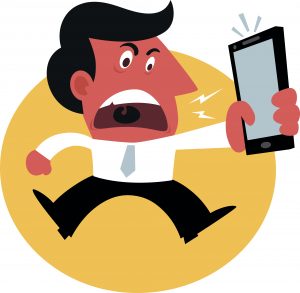Lose Your Temper, Lose Your Law Practice: The Real Rules Of Civility
This should go without saying, but racist rants aren't good for business.

Yesterday, New York small firm lawyer Aaron Schlossberg made headlines as a lawyer behaving very badly when a video of his racist tirade against restaurant staff for speaking to each other in Spanish and threats to have them investigated or deported by ICE went viral with devastating consequences. Within hours, social justice advocate Shaun King’s manhunt for the perpetrator via Twitter yielded pay dirt with a positive ID by seven of Schlossberg’s college classmates. Once outed, Schlossberg was trashed with poor reviews on Yelp (though none on Avvo where Schlossberg still maintains a 5-star rating) and sabotaged on Google , and more recently, evicted from his office space. Shaun King has asked the New York State Bar Association to investigate Schlossberg’s “bigoted” conduct, while Scott Greenfield reports that others are calling for a boycott of Schlossberg’s clients.
So what happens to Schlossberg moving forward? First, despite the outrageousness of Schlossberg’s behavior and public calls for ethics investigation, he’s unlikely to face disbarment or even public discipline, opines ethics expert, Stephen Gillers — though a private admonition remains an option. Although a mere wrist-slapping from the bar may disappoint the public, the result won’t come as a surprise to many attorneys. ABA Guidelines on Civil Conduct and New York’s Standards of Conduct are designed to ensure that lawyers behave themselves when operating as part of the judicial system, and therefore only address lawyers’ conduct towards opposing counsel, judges and clients. Moreover, the ABA Guidelines and New York standards are aspirational and not binding, and therefore non-compliance will not subject an attorney to discipline. Nor do Schlossberg’s threats to call an ICE officer to investigate and potentially deport workers run afoul of ethics rules either. Ethics rules prohibit threats of criminal prosecution and litigation only when used as a means to gain an advantage in litigation and not as a generic bullying tactic.

The Business Case For AI At Your Law Firm

In any event, the Schlossberg case shows that ethics rules on civility are largely irrelevant in the video age. We don’t need regulators to sanction lawyers for behaving badly when the public will do the job for us. Schlossberg may not lose his license, but he will almost assuredly lose some or all of his business nonetheless. According to his website, Schlossberg represents “corporate clients, entrepreneurs and insurance policy holders” in complex coverage matters many of whom may not want to deal with Schlossberg’s present drama — or may regard him as too hotheaded and unstable to entrust with a litigation matter. (On the flip side, Schlossberg may pick up business from jerks and racists).
The public response to Schlossberg’s conduct raises a question that Scott Greenfield ponders: Does Schlossberg’s reprehensible conduct justify destruction of not only his law practice (which he brought on himself) but also his clients? As Justice Brandeis once wrote, sunlight is the best disinfectant for wrongdoers — but is there some point when the public opinion that Brandeis believed would remedy social ills devolves into no-holds-barred mob justice?
Ultimately, whether we view the response to Schlossberg’s rant as public opinion or mob rule, one thing is clear: Bar regulations on civil conduct aren’t needed to control lawyers’ conduct in public. From here on out, lawyers are forewarned that those who publicly lose their temper and are caught on video won’t necessarily lose their bar license, but they can easily lose their business. There’s no more effective civility rule than that.
Sponsored

The Business Case For AI At Your Law Firm


Early Adopters Of Legal AI Gaining Competitive Edge In Marketplace

Is The Future Of Law Distributed? Lessons From The Tech Adoption Curve

Early Adopters Of Legal AI Gaining Competitive Edge In Marketplace
 Carolyn Elefant has been blogging about solo and small firm practice at MyShingle.comsince 2002 and operated her firm, the Law Offices of Carolyn Elefant PLLC, even longer than that. She’s also authored a bunch of books on topics like starting a law practice, social media, and 21st century lawyer representation agreements (affiliate links). If you’re really that interested in learning more about Carolyn, just Google her. The Internet never lies, right? You can contact Carolyn by email at elefant@myshingle.comor follow her on Twitter at @carolynelefant.
Carolyn Elefant has been blogging about solo and small firm practice at MyShingle.comsince 2002 and operated her firm, the Law Offices of Carolyn Elefant PLLC, even longer than that. She’s also authored a bunch of books on topics like starting a law practice, social media, and 21st century lawyer representation agreements (affiliate links). If you’re really that interested in learning more about Carolyn, just Google her. The Internet never lies, right? You can contact Carolyn by email at elefant@myshingle.comor follow her on Twitter at @carolynelefant.
Sponsored

Legal AI: 3 Steps Law Firms Should Take Now








